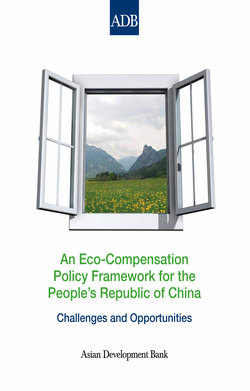Читать книгу An Eco-Compensation Policy Framework for the People's Republic of China - Qingfeng Zhang - Страница 4
Foreword
ОглавлениеEco-compensation, or payment for ecosystem services (PES), is a payment and incentive system that supports sustainable ecosystems, provides stable financing for conservation, and—when strategically designed—can address livelihood issues for the rural poor. It is an innovative and exciting step forward in how we think about the environment and ways to protect it and reverse damages already done to it. PES programs place an economic value on the natural services that different resources in our environment offer to our economies, standard of living, and future; for example, such services include those provided by clean and ecologically healthy rivers and forests, rich biodiversity, and scenic amenities. A PES program would figure an economic value and then design payments and incentives for individuals, groups, and local governments who live within the targeted resource area to protect that resource. Such protection usually involves farmers and industries adopting more environment-friendly practices.
In the People’s Republic of China (PRC), policy makers have been experimenting with a wide array of policy and program innovations under the broad heading of eco-compensation. In fact, the PRC is driving some of the largest public PES schemes in the world. The current drive toward developing eco-compensation mechanisms started in 1999, when the government began the Conversion of Cropland to Forest and Grassland Program (also known as “Grain for Green”), which has spent more than CNY130 billion ($19 billion) to date on payments and incentives for farmers to retire and afforest or plant grass on more than 9 million hectares (ha) of sloping or marginal cropland. The program now stretches to all corners of the country. Since 2001, the government has spent more than CNY13.34 billion ($2 billion) on the Forest Ecosystem Compensation Fund, a program that pays households, communities, and local governments to protect about 44.53 million ha of key forest areas across 30 provinces. The variety of payment schemes for watershed services have escalated in recent years, from eight in 1999 to more than 47 in 2008, with an estimated transacted value of $7.8 billion and covering about 290 million ha.
This paper provides a synthesis of the findings from the International Conference on Payments for Ecological Services, held on 6–7 September 2009 in Ningxia Hui Autonomous Region. This conference was hosted by the PRC National Development and Reform Commission, the Ministry of Environmental Protection, the Government of Ningxia Hui Autonomous Region, and the Asian Development Bank (ADB). About 500 provincial and central government representatives from more than 14 provinces and 7 central ministries, and a number of international experts attended the conference.1
This paper credits the PRC with having gained a wealth of experience with eco-compensation, which should influence both domestic and international understanding of the role of government in sustainable ecosystem services. This paper discusses the evolution of eco-compensation policy within the PRC’s environmental regulatory framework, summarizes important national and international developments, provides policy recommendations, and suggests further action. The paper concludes that the PRC government would benefit from greater understanding of other countries’ experience with PES programs and other market-based environmental policy instruments as it continues to work on an eco-compensation policy framework, which would enable private sector participation.
ADB’s Strategy 2020, the long-term strategic framework of the Asian Development Bank (2008–2020), focuses its support on three distinct but complementary development agendas for the region: inclusive economic growth, environmentally sustainable growth, and regional integration. Supporting PES schemes in the PRC will significantly contribute to all three of these strategic agendas.
The findings in this paper offer a good basis for further strategic policy dialogues between the PRC, ADB, and other development partners on instituting PES schemes. One solid step forward would come from having created a much-needed preliminary financing framework to guide development partnerships. Current and future policy dialogues are also an ideal opportunity to identify ways of designing effective PES schemes for the PRC.
Klaus Gerhaeusser
Director General, East Asia Department
Asian Development Bank
